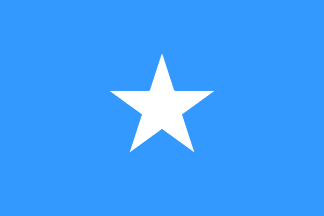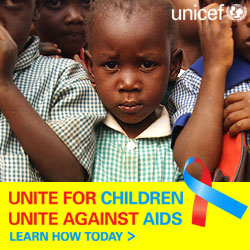Once again, the leadership in Eritrea is flexing its 'stupid' muscle. Trying its best to garner the silver medal in the 'worst regimes of Africa' campaign (behind clear gold medal shoo-in Zimbabwe), Eritrea has come out this week warning Ugandan peace-keeping troops to leave Somalia or face "dire consequences."

As pointed out by Ugandan leadership, the newly arrived troops, are under the joint mandate of the African Union and the United Nations. This continued foot-in-the-mouth syndrome of Eritrean leadership is not only making a mockery of the fine people of Eritrea, but continuing to marginalize this desperately poor country from needed international support.
========================================
Somalia: Eritrea Warns Uganda to Leave Somalia
by: Henry Mukasa
www.allAfrica.com
ERITREA on Friday warned Uganda to pull its peacekeeping force out of Somalia immediately, warning of "dire consequences" if they remain.
"We believe that the government of Uganda must rectify its error and pull out of Somalia, otherwise the situation will become increasingly dangerous," Eritrean Information Minister Ali Abdu said.
"It will not only worsen but will become a war between the Somali people and external forces. That will have dire consequences for the whole region."
In a reaction, UPDF spokesman Paddy Ankunda told New Vision by telephone: "Eritrea has no right to demand that we withdraw. Unless they are claiming they are not part of the African Union. We received a mandate, not only from the AU but also from the UN."
The Ugandans have been attacked since landing in the capital on Tuesday. Mortars exploded close to Mogadishu airport during the hand-over ceremony and two were wounded in an ambush the following day. And yesterday evening, a landmine was discovered on the road leading to the airport.
Earlier on Friday, a cargo plane carrying military equipment and six UPDF soldiers for the African Union peacekeeping force in Somalia caught fire as it landed in Mogadishu.
The cause of the fire was not immediately clear and no casualties were reported.
"The plane carried military equipment and some six soldiers and everything is safe now. We highly believe that the fire was due to some technical problems," Ankunda, said.
The airport remained closed most of the day and all traffic was diverted to other destinations. One plane carrying additional UPDF soldiers returned to Uganda, according to a source at Entebbe airport.
Meanwhile, the death toll of Wednesday's clash between the UPDF and Somali gunmen has risen to at least 13. A Ugandan convoy that drove out to protect the transitional government came under mortar attack.
"The mortar missed, smashing a restaurant nearby," explained Ahmed. "In the attack and the subsequent exchange of fire, 13 to 15 civilians were killed and 20 wounded."
Ankunda confirmed the civilian casualties. "It is true, a lot of people were killed in that attack," he said. "The mortar which missed our vehicle landed straight into the restaurant. That is why our vehicle managed to drive through."
Two UPDF soldiers were injured. Private Robert Bamutaraki and Lt. Michael Wandera, who were hit by shrapnel in the leg and the arm, were flown back to Uganda on Thursday morning.
The AU is still investigating the incident. A radical Muslim youth group, calling itself the Islamic Courts Movement, has threatened to wage 'Jihad' or holy war against the peacekeeping force.
Around 1,000 of the 1,700 Ugandan soldiers had by yesterday arrived in the Somali capital. Their task is to protect the transitional government and the government institutions and to train the Somali army.
The Ugandans are also deploying tanks in Somalia. A dozen of them were loaded onto a freighter late on Thursday at the Kenyan port of Mombasa, where they were shipped by train.
Analysts say the peacekeeping force are targets because they are foreigners in a land known for its xenophobia and are seen as supporting a government that has many enemies in Mogadishu.
http://allafrica.com/stories/200703100131.html







